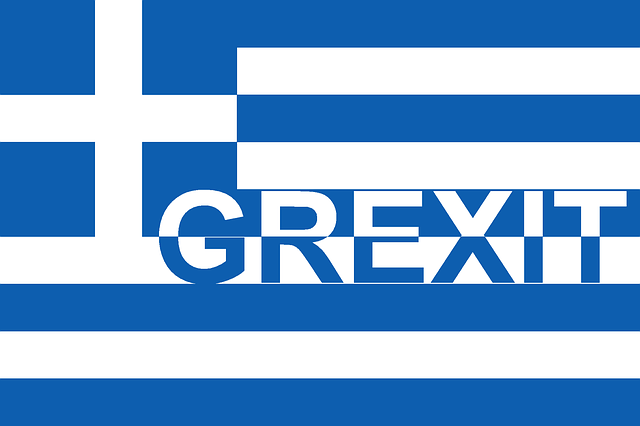Greek Debt – Not All Greek
Has the Bitter Medicine of Austerity Worked in Greece?
Before the onset of the Greek crisis in 2009, the Greek debt was at 113 percent of its Gross Domestic Product (GDP). After the “bail-out” by the Troika – European Commission (EC), European Central Bank (ECB) and International Monetary Fund (IMF), Greece debt today stands at 175% of its GDP.

Image Courtesy: pixabay.com
Did the Greeks not do anything to improve their economy?
The primary ask of the Troika was deep cuts in government expenditure, salaries, pensions, health, education and other welfare measures, along with fire sale of its assets. With such harsh measures, Greece reached its target – from a deficit in its income over expenditure of around 15% in 2009, to a primary surplus of 1% by 2015. The Troika wants further “reforms” and a rise in primary surplus to 2% by 2016 and 3% by 2017.
As a consequence of such a policy, there has been a huge rise in unemployment, particularly among the youth (50-60% unemployment rates), poverty and fall in other parameters social parameters such as health, education, etc.
Why then has Greece's debt to GDP ratio worsened in spite of reducing their deficit?
All such austerity measures have led to a severe contraction of the economy – the (GDP) has fallen by 25% in these five years. As a consequence, the Greek Debt as a ratio of its GDP, has actually increased by almost 50%. All of Troika's predictions regarding such measures will help growth have proved wrong. Yet, the Troika wants Greece not only to continue the same set of failed measures, but even harsher ones.
Did the Troika not pay Greece huge amounts in bailouts?
No. The loans that the Troika granted to Greece, went to pay the private banks and private bondholders. In 2009, some 80 % of Greek public debt was held by the private banks of seven EU countries, 50 % being held by German and French banks alone. The bailout was largely of private banks who had made bad loans to Greece. Through this bailout, what was loans extended by private banks were transferred to EU governments and the IMF. As a consequence, the Troika now holds four-fifths of Greece's total debt.
If Greece follows the Troika prescriptions, would it not come out of its crisis, even if it causes some temporary pain?
IMF’s own report concedes that without debt relief, Greek debt is not sustainable. In order for Greece to repay its debt without severe “hair cuts” (reduction of its debt), IMF researchers had to assume “…Greece would go from having the lowest average total factor productivity (TFP) growth in the euro area since it joined the EU in 1981 to having among the highest TFP growth, and that it would go to the highest labor force participation rates and to German employment rates.” Varoufakis comments, “Pigs would, of course, sooner fly!”
The IMF report says that without significant debt relief, not even fifty years of austerity (i.e. a primary surplus of 2.5%) would suffice to reduce debt to sustainable levels. The IMF report says Greece needs an additional €60 billion over the next three years and large-scale debt relief to stabilise the economy.
But if Greece took on such debts, do not they have the obligation to pay it back fully?
In the commercial world, there is no risk free loan – any party advancing loans has also to assess whether the party given loans, has the ability to pay back. The bankruptcy laws protect those who become bankrupt unlike the Middle Ages, when debtors were put into prison. What the Troika are doing is reverting to Middle Ages: putting entire countries in jail.
The banks got off scot-free for advancing bad loans. By essentially “nationalising” the loans of private banks, the EU governments took over the loans of the private banks and they are the ones now negotiating with the Greek government.
Does a No vote in referendum mean that Greece will automatically have to leave the Eurozone?
There is no provision in the Maastricht Treaty for a country to leave the European Union or the Eurozone. So this is uncharted territory. There is no reason that negotiations between the Troika and Greece cannot continue even if the Greek people vote No.
The Troika are scaring the Greek people to vote Yes, with an implicit threat of inflicting total bankruptcy on the Greek economy, starting with its banks. They – particularly the EU leaders -- are more interested in a “regime change” and a defeat of the Left than addressing the Greek crisis.
Get the latest reports & analysis with people's perspective on Protests, movements & deep analytical videos, discussions of the current affairs in your Telegram app. Subscribe to NewsClick's Telegram channel & get Real-Time updates on stories, as they get published on our website.
























